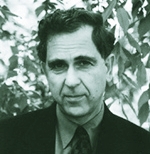
Explaining his religious beliefs, John Dewey once wrote that he was "skeptical about things in particular" but had "faith in things in general." The liberal view of politics is analogous. Liberalism has always been a gamble on freedom and public argument, made out of a willingness to entertain doubt about all things in particular, a belief in robust criticism and competition, and a general confidence in the outcome. Recent history has surely tried that confidence, but liberalism has survived darker times than these, and the odds, I believe, still favor the gamble that liberalism invites us to make. The free encounter of conflicting ideas, the methods of organized skepticism, and the system of economic and democratic political competition have been rich sources of knowledge, abundance, and human possibility. They are part of the story of freedom’s power.
This book, however, is also about what some may regard as the counterintuitive propositions that freedom requires power in the form of a strong and capable constitutional state and that modern democratic liberalism—by enlarging that state in some respects while constraining it in others—makes it possible for a society to achieve both greater power and greater freedom. In these pages I offer a historical interpretation of the liberal project and a defense of its modern inclusive and egalitarian form. Liberalism does not call only for rights that place limits on the state. Rights inevitably imply corresponding individual and social responsibilities, and as I try to show in these pages, liberalism is as much a method of creating power as of limiting it. This is the lesson of the immediate aftermath of the great classical liberal revolutions (1688 in England, 1776 in America) as well as liberal revolutions of more recent vintage (1989 in eastern Europe). In a sense, the liberal state and its laws are freedom's power, the indispensable basis of freedom's survival.
Liberalism isn't just a set of fine aspirations. Historically, it has emerged from the pressures of political conflict, domestic and international, not least of all from the pressures of war. Freedom's Power, therefore, is about both the power that free societies generate and the power that they demand.
This book may be read both as a rebuttal to contemporary conservatism and as a corrective to some currents of liberal thought and progressive politics. I set about writing it because it seemed to me that there was no cogent, concise, accessible, and up-to-date account of the liberal project, at least not as I understand it. I hope to persuade you that there is a better way to think about liberalism—truer to the tradition and better suited to the world's realities—than what you may previously have understood. Although I have by no means tried to address every aspect of liberalism, I have ranged widely here, dealing with both history and ideas, philosophy and politics, international relations and domestic policy. While acknowledging the different strands of thought that make up the tradition, I have tried to give a sense of its coherence and integrity. Unlike those who see a sharp discontinuity between classical and modern liberalism, I see the two as closely related—the latter growing out of the former in response to historical experience, changed social conditions, and a more democratic politics. Both conservatives and liberals in the United States see themselves as bearers of the nation's founding ideals. This book argues that liberals have the better claim.
In the face of attacks, some liberals advise using the term "progressive," not necessarily to indicate any change in beliefs, but merely to escape the abuse that conservatives have heaped on liberalism. Rebranding may work in marketing, perhaps even in marketing political candidates, but it is a pointless dodge in the contest of ideas. No one would be fooled, and giving up an identification with liberalism would mean sacrificing the felt connection to a rich heritage of political thought. In any event, this book reflects a different impulse—not getting away from the past, but returning to it to get straight what liberalism is about and to set straight what has gone wrong with it in recent decades. ...
Paul Starr
November 2006


